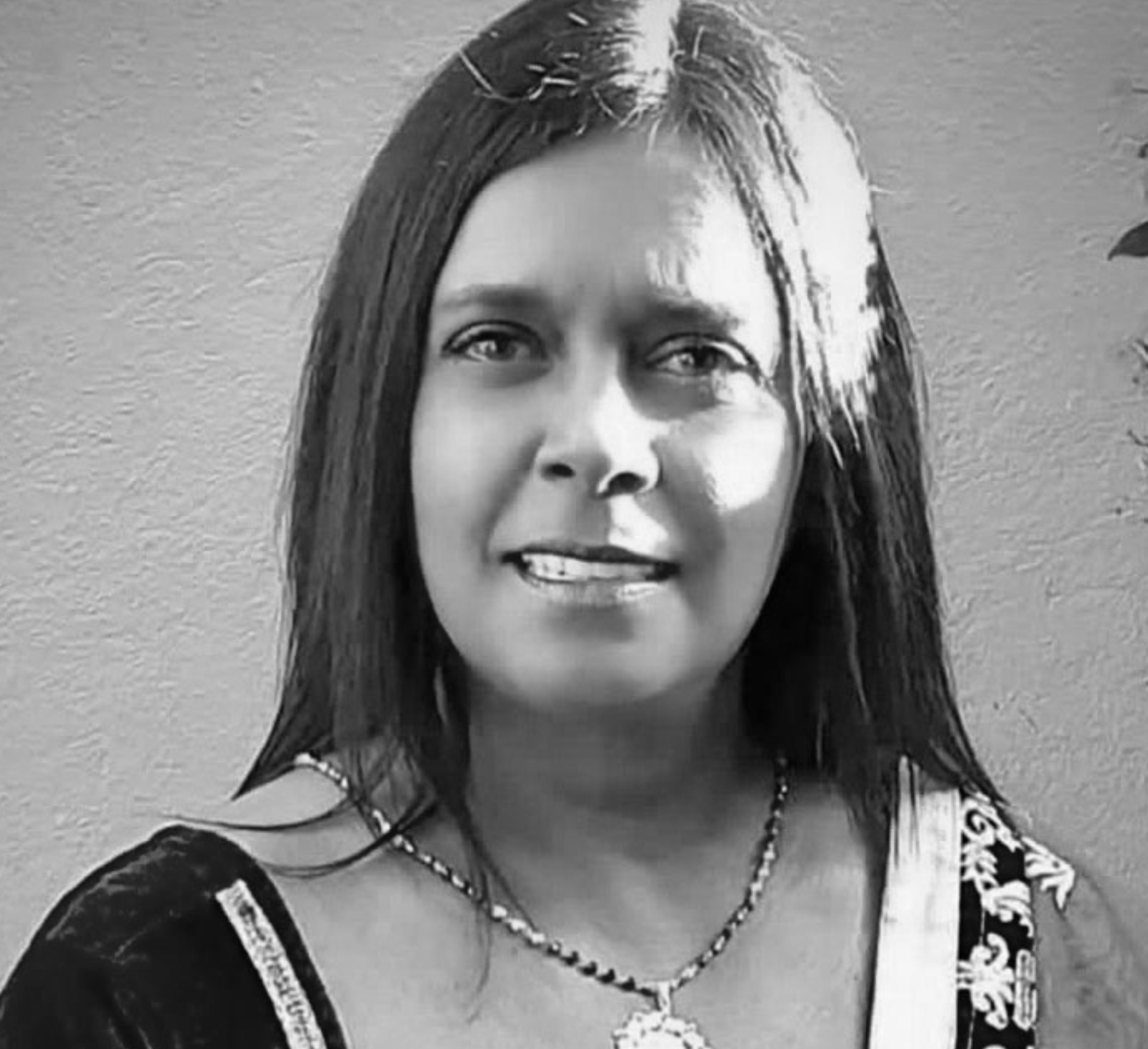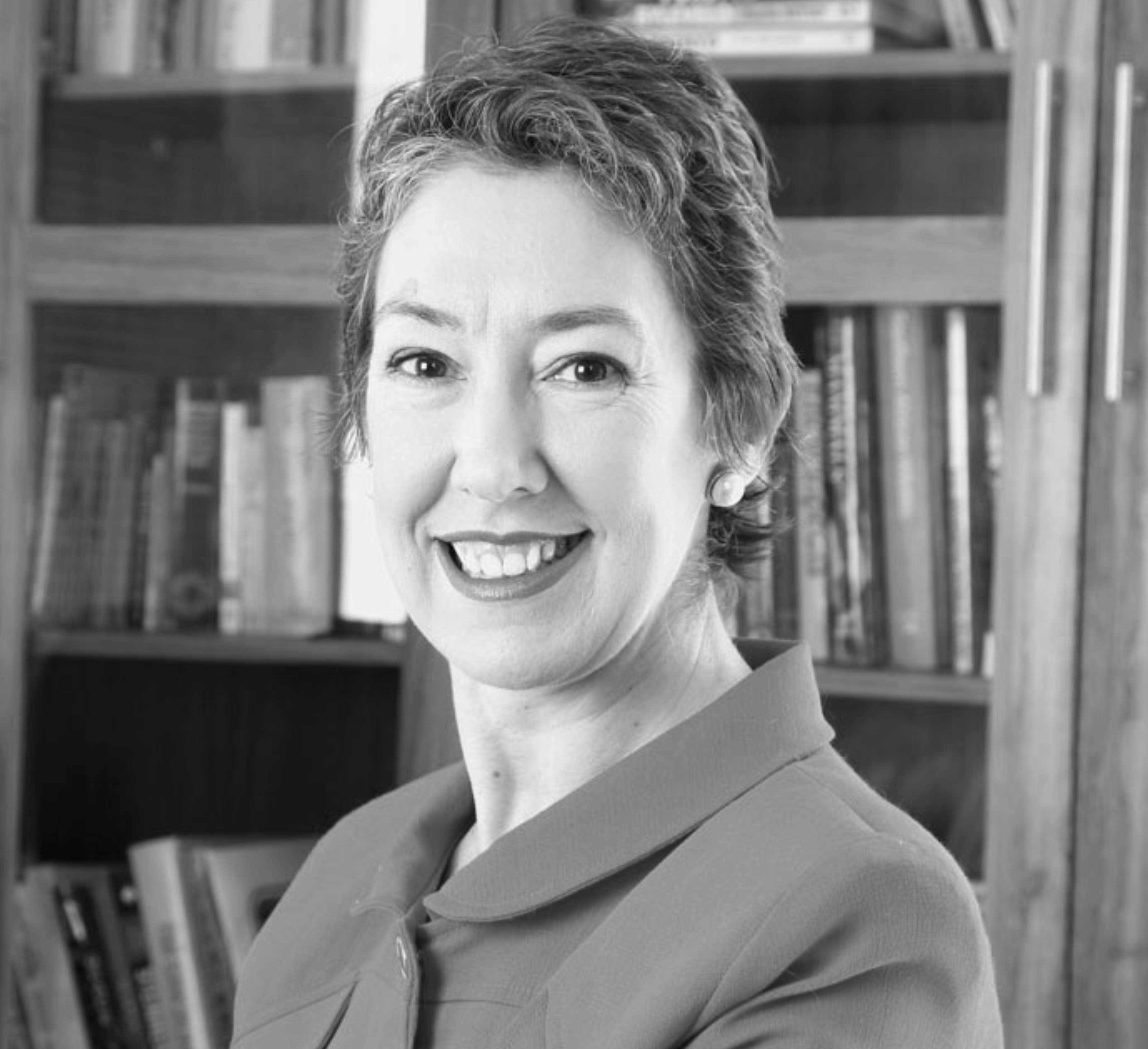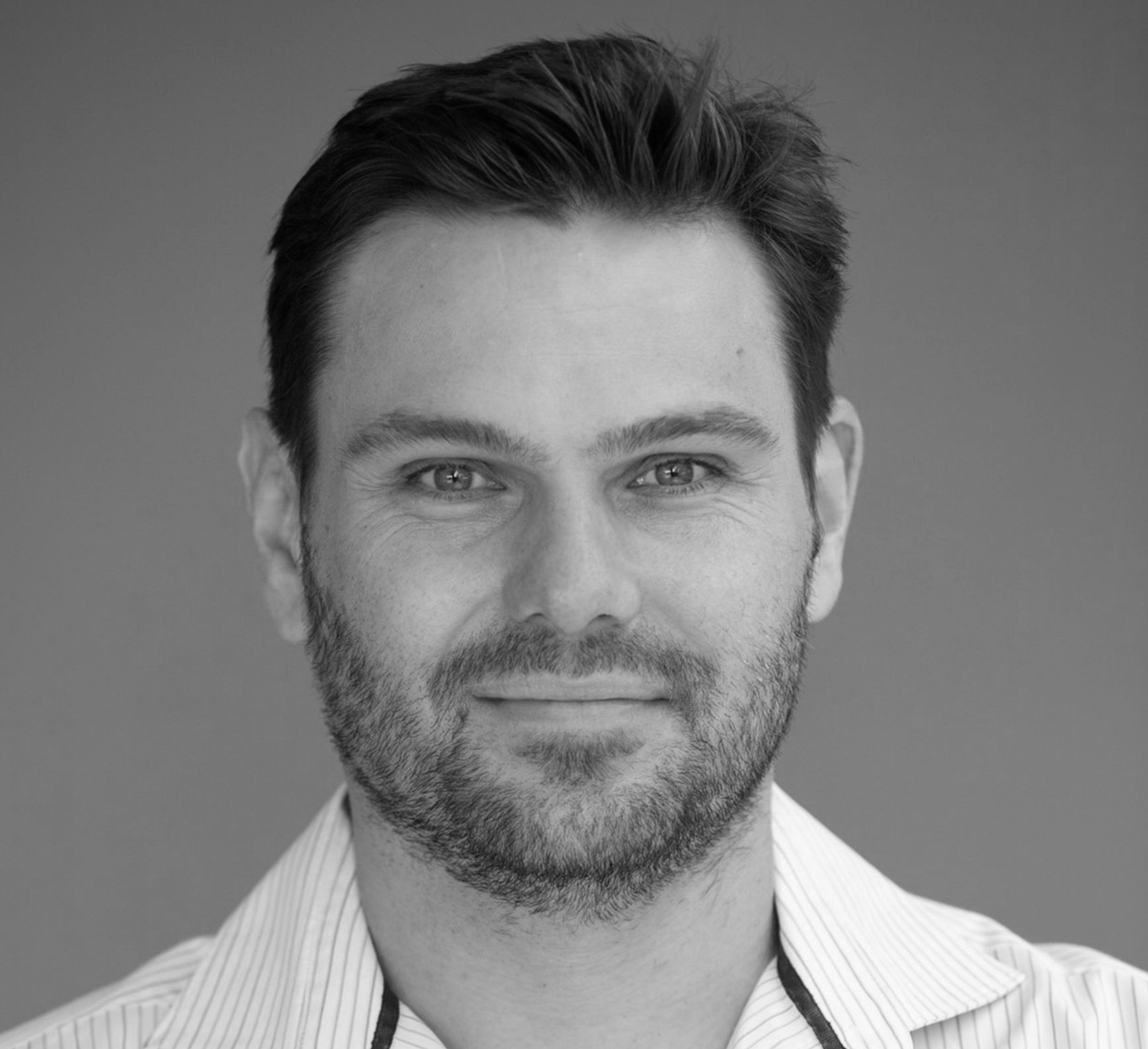152: Sarika Lakraj-Naidoo
Purpose Fuelled by Passion
Responsible for a budget of R7.8 billion, Sarika Lakraj-Naidoo is a CFO who has always challenged the status quo and she continues to do so as she strives to ensure that state money is used for its intended purpose at Johannesburg’s Public Safety Department

CIARAN RYAN: Today’s podcast is sponsored by Draftworx, which provides automated drafting and working paper financial software to more than 8000 accounting and auditing firms and corporations. CFO Talks is a brand of the South African Institute of Business Accountants. What a pleasure it is this morning to welcome Sarika Lakraj-Naidoo, who is CFO in the Public Safety Department at the City of Johannesburg. She’s got a rather wide portfolio covering everything from Metro Police to emergency management system, licensing department and integrated intelligence operations. She’s been at the City of Johannesburg since 2007, before that she was CFO at the Chris Hani Baragwanath Hospital, which falls under the Gauteng Department of Health. She is a cost and management accountant with an MBA from Regenesys Business School, where her dissertation was on developing a standardised strategy for municipalities in Gauteng to report corruption, nepotism and irregular business activity. That’s quite a meaty dissertation. She’s currently busy with a PhD dissertation on a similar topic, but this time applied more broadly to national government, and the subject of that topic is developing a standardised strategy for the South African government to report fraud, corruption, nepotism, and irregular business activity. That’s also being completed through Regenesys Business School. If that’s not enough, she’s also busy authoring a paper on leadership and management failure within the South African public health system, a case study of Chris Hani Baragwanath Hospital. Wow, Sarika, welcome first of all to CFO Talks, and for people outside of South Africa, that is quite a mouthful. I think a good place to start is maybe just your focus on developing reporting systems for fraud and corruption at both municipal and national levels, obviously you found pre-existing reporting systems inadequate, maybe explain what were your key findings and recommendations, if we could kick off there.
SARIKA LAKRAJ-NAIDOO: Alright, thank you very much. Good day to everybody who’s listening and thank you very much for that introduction. I think it is apt for me to commence with firstly, the South African law and the stipulations therein in terms of the Protected Disclosures Act that defines the concepts and provides for avenues of reporting for internal discipline and/or criminal matters whilst protecting whistleblowers from being subject to occupational detriment in their work environment. Secondly, the Prevention and Combating of Corrupt Activities Act that places a duty on certain persons holding a position of authority to report corrupt transactions. Well, you’ve obviously asked me what is my interest in all of this, and what I found is that having worked in both the public and the private sectors, there’s a fundamental difference between business operations. Within the private sector the focus is obviously on profitability, innovation, market share, and that private sector does by employing competent, educated and experienced employees. These employees are then performance managed in terms of productivity and the return on investment. However, within the public sector it’s totally different. Mostly in South Africa, government departments are funded by taxpaying revenue. Initiatives in terms of priorities and focus is on service delivery to vulnerable communities. So what it is that I did find is that there’s a complete lack in terms of consistency of rule application, which is just totally absent. The second thing that I found is that there is no standardisation in terms of reporting mechanisms across municipalities or across national government. I would like to just delve into that just on the surface, just to tell you that we’ve yet to harness political will in terms of changing systems, in terms of changing policy, in terms of changing procedure, documented workflows and roles and responsibility when it comes to the reporting mechanism per se. You find that due to the lack of standardisation and consistency of rule application, we find that when it comes to reporting itself, specifically in the media or in case law or cases, we find that figures are being distorted in terms of financial loss, and we’re probably only reporting a fraction of what the actual losses are. Then you’re going to ask me what are my recommendations in terms of what I found when I wrote these papers and through all of the research. Well, the first place to start is obviously harnessing the political will to change from national level and filter it downwards into municipalities, provincial government and so on. The recommendations actually start at the recruitment phase in terms of political mandate versus the administration operations mandate. You find within our country a lot of strategic positions are filled based on political alliances, rather than on competence, education, and experience. Hence, there’s going to, well, the suggestion is obviously a change from those foundational levels that filter through the system, so that money meant for vulnerable people is actually channelled into these business objectives. So that’s the first recommendation that I made. Obviously, the second one is we are actually measured by auditors in terms of reasonability of assurance for activities and budget spend. You will find that with financial loss, obviously, monies are not being channelled into the priority that it’s meant for and, hence, these losses occur. So using international models of competence and education and the expertise in each field, where there is vetting in terms of candidates, consistency applied across the organisation, as well as continual assessments together with effective performance systems and peer reviews is how government is going to be able to start this transformation and change that we so need. Secondly, we need a standardised application of the laws in the workplace. You find that there’s a difference in application. I spoke about protected disclosures and PRECCA 7.50 in terms of the Prevention and Combating of Corrupt Activities Act, and it’s primarily because of the interpretation that employees and employers are using these differently. Apart from that, when I speak about standardisation of policy procedures, workflows, these must be uniform across all government departments from national downwards. Then we also need standardised template reporting because what this will then do is obviously teach each department in terms of mitigating measures in terms of risk, and those mitigation measures can then be adopted anywhere by a competent authority. Apart from that, one of the recommendations is also standardised sanctions and the sanctions are obviously based on severity of the financial loss, the threshold of the financial loss and repeat behaviours of offenders. May I state that you must remember that criminal activity starts with an intent. So, hence, the findings and, hence, the recommendations.
‘Government officials are too afraid to speak up for fear of repercussions.’
CIARAN RYAN: Fantastic. Okay. Now, have some of these recommendations been implemented that you’ve been talking about, and if so, are we seeing any improvement in results?
SARIKA LAKRAJ-NAIDOO: Well, it’s very disappointing and disheartening to note that the recommendations are yet to be implemented. Remember these have to be done at national treasury level, where government departments receive their funding from, and you find that fraud, corruption and nepotism and irregular business activities, is a very sensitive matter in South Africa because government officials are too afraid to speak up for fear of repercussions. We are all aware of the latest murder in terms of Babita Deokaran, an ex-colleague of mine, recently in terms of whistleblowing. So government really needs to step up consistency of the law application, as well as the rule application in the workplace, so that whistleblowers will feel protected in terms of what is going wrong currently.
CIARAN RYAN: I think for people who are not aware of that case that you just mentioned here, you’re talking about the murder of Babita Deokaran, who was the chief director of financial accounting at the Gauteng Department of Health, and she was busy investigating, I guess she was investigating some frauds that were going on in that department. It’s an absolutely shocking story, for people who are not in South Africa and haven’t followed the press here, it’s terribly heartbreaking. She was a colleague of yours, you say, you worked with her.
SARIKA LAKRAJ-NAIDOO: Yes, that’s right, I did. When I was the chief financial officer at Chris Hani Baragwanath Hospital I did work with her. Babita was actually involved in the PPE, personal protective equipment, that we’ve been using all during Covid. and I’m sure we’re going to get into that as we move along with this chat of ours.
CIARAN RYAN: Okay, let’s maybe recycle back to that. A question I wanted to ask you was about these recommendations because you’re also doing a PhD dissertation now on very much the same subject that we’ve been talking about. What’s the reception been like at national level? You talked about it, there’s a disappointment because it hasn’t been implemented yet, but is there a receptiveness to introducing some of these changes?
SARIKA LAKRAJ-NAIDOO: I’m yet to receive a response from national level. Obviously, the changes are needed in terms of the volatility in the country currently and the political landscape, but we must just bear in mind that there’ll only be an improvement in results once internal control is addressed in terms of the systems, the policies, procedures and the uniformity of application, as well as the competence in terms of the will of wanting to curb financial losses. So yes, I’m yet to receive a response from national treasury or from national government per se.
CIARAN RYAN: Okay. I think governments, like organisations anywhere, they respond to pressure points. So the more pressure that is applied, the more noise that is made about these things, if you knock on the door a sufficient number of times, eventually it will open. So we hope that this is a message that is getting through. But moving on from that, tell us a bit about yourself, your background, where did you grow up and how did you enter the world of accounting?
SARIKA LAKRAJ-NAIDOO: I was born in Durban in a very traditionalist Indian family and throughout my life, all that I’ve actually wanted to do was to challenge the status quo. Newton’s third law for every action in nature, there’s an equal and opposite reaction is also true for accounting. It’s very simple actually, assets is equal to owner’s equity plus liabilities. Accounting is black and white, there are no grey areas, hence, the balance. It’s similar to my birth sign, which has a scale, in terms of my Virgo character. You’ve already alluded to my achievements and experiences and education, so I won’t get into that, suffice to say that government has a need for competency and for officials that have the people’s hearts at the forefront in terms of service delivery.
‘The one thing I did want to do was to serve communities and to save lives.’
CIARAN RYAN: I must say, I find it very heartening, your message that’s coming through to me is your sense of responsibility in the public sector. If we had more of this, I’m sure we would have an entirely different perception of the public sector in South Africa and the standard of service that we expect as taxpayers to receive. So I find it a very heartening message. I just wanted to drill down a little bit into this, was accounting a choice for you? Was it something that maybe you fell into by default? Did you have a natural affinity and talent for it, how did that happen?
SARIKA LAKRAJ-NAIDOO: My favourite subject at school was maths. The reason that I love figures is because it doesn’t talk back to me. It’s such a simple thing to do, maths is simple, accounting is simple, but it has a message. Auditors use accounting in terms of pronouncing an audit opinion based on activity as well as budget spent. So for me, I can measure my own performance based on what it is I’ve promised our people to do, versus what it is that I’ve actually done. So it’s a beautiful tool. When you talk about default, yes, it is, the one thing I did want to do was to serve communities and to save lives. Initially I wanted to get into medicine and unfortunately in those days finances was very difficult to come by, as well as the political landscape growing up at the time. Second was obviously finances only because money doesn’t talk back and numbers doesn’t talk back. So I’ve since used figures as a tool to ensure that people get what it is that they deserve. Let me tell you, you must have a purpose and that purpose must be fuelled by passion because once you do that, you never work a day in your life.
CIARAN RYAN: Explain your current role at the City of Johannesburg and how big is your team, are you working remotely, or have you got a hybrid working model, where you’re partly in the office, partly at home and what are some of the challenges now during the Covid lockdowns that you’re having to confront?
SARIKA LAKRAJ-NAIDOO: I work within the essential services environment, so it’s a 24/7 job and it’s not just a job because we save lives, that is what we do. As a support function, we ensure that the risk factor is actually mitigated. Remember, the Public Safety Department has approximately 10,500 staff and these officials come into direct contact with the public on a daily basis, which means that they are at a greater risk of the Covid virus. Hence, we have to ensure that mitigation in terms of the vaccine and in terms of personal protective equipment is in place at all times. Within the finance role, there are 70 officials who report into the portfolio. I have a revenue and cash management work stream that has to do with the licensing function, that has to do with ambulances and obviously, the tariff of charges for the Johannesburg Metropolitan Police Department, as well as the emergency management services and disaster management services. I manage the supply chain management function and tender management function. I have a budget of R7.8 billion on a daily basis. Part of the work stream is also budgeting, audit response and management and financial reporting. Apart from that, I have assets and the payment cycle as a separate work stream because we deal with in excess of around 450 suppliers on a monthly basis. Then I have warehousing inventory and store management, which includes the receipt and issue of the personal protective equipment to our staff who interact directly with the public. Then we have finance advisory, this is very important only because we have such a large staff complement, bearing in mind that the total staff complement of the Johannesburg Metropolitan Municipality is in excess of 36,000 people, and public safety itself is over 10,500 people as it currently stands. So that is the extent of the function that we perform at the Public Safety Department.
CIARAN RYAN: That is a huge portfolio, a R7.8 billion budget. I imagine that we’re talking about fleets of ambulances that probably run into, I don’t know, hundreds across the city, Johannesburg is a big city. Would emergency services include fire engines and things like that?
SARIKA LAKRAJ-NAIDOO: Yes, absolutely. We have 101 ambulances that are currently owned by the City of Johannesburg, that has been complemented by Gauteng provincial government that also uses 50 of their ambulances over just the Gauteng periphery. We then have fire trucks that we have assigned to 30 of our fire stations within the Gauteng region itself. Apart from that, we have licensing centres in each of our areas, we have disaster management centres in each of our areas. It’s quite a large portfolio. But when I tell you that our job is to save lives and property, believe you me, that’s exactly what we attempt to do on a daily basis.
CIARAN RYAN: I think you also have an infrastructure protection unit, if I’m not mistaken, does that fall under you as well? I came across it sometime ago when there was illegal mining happening, these old mining tunnels that are underneath the city of Johannesburg and a lot of what they called zama zamas or artisanal miners going down there on a daily basis, but they were getting very close to some of the key infrastructure like Sasol gas pipelines and that sort of thing. Obviously, that’s a separate unit, but I don’t know if this is something that falls under your portfolio?
SARIKA LAKRAJ-NAIDOO: In terms of the city bylaws, it does. So we will send our Johannesburg Metropolitan Police in terms of these zama zamas, in terms of bylaw implementation. But the other thing that we also do is in terms of land invasion, if they’re invading land that doesn’t belong to them, then we’ll send out teams of people in terms of taking care of that criminal activity that is happening. Just to let you know that the R7.8 billion does contain R169 million that has to do with infrastructure development. A lot of that money goes towards building campuses for academia, where we train emergency officials, paramedics, Johannesburg police, disaster management officials and so on, where we build more fire stations, where we buy more equipment for the job that needs to be done. So from an infrastructure perspective, that’s the type of thing that public safety will fund. However, Johannesburg Metropolitan Municipality will obviously fund the infrastructure in terms of these pipelines that you speak of and so on.
‘In my opinion, the accounting profession is in crisis worldwide.’
CIARAN RYAN: Okay, moving back to the accounting profession itself, a question I have for you is, is the accounting profession in crisis, and I ask this against the background of recent court activity over Steinhoff, a very well-known company in South Africa and actually internationally, where shareholders lost billions of rands through misreported financial statements. My question is, is the accounting profession in crisis and is it a more systemic problem than we believe it to be?
SARIKA LAKRAJ-NAIDOO: In my opinion, the accounting profession is in crisis worldwide and that is because of the moral fibre of accounting professionals having deteriorated, and it has deteriorated to such an extent that an outcome is reported based on a paying mandate, rather than the actual situation. Money is not the root of all evil, it’s the behaviour of criminals with intent that compromise the ethics and values that bring our professional reputation into disrepute. Accounting professionals and accounting firms should be blacklisted worldwide for not performing their professional ethical duty. That, in my opinion, needs to be implemented worldwide because I just think it’s so blatant currently. The saddest part is I always thought that finances had to do with proactivity and when you find these reactive stances where we only find out a year later, two years later and three years later that there’s been huge financial losses and that people have not been credible in their behaviours and in the manners that they’ve conducted business proceedings in terms of accounting. It’s then too late to recoup those losses and then it’s obviously the shareholders that lose out, it’s people’s livelihoods that have been placed at stake and it’s such an embarrassment, not just for Steinhoff, but the accounting profession per se. The same can be said about government when we get these audit opinions that have been polluted because of the paying mandate. It’s actually disgraceful, really, because that is not the type of profession I joined some 32 years ago.
CIARAN RYAN: Okay, clearly, you’ve seen in your 32 years as an accountant, you’ve tracked and measured, and you’ve studied this deterioration, and this is why your dissertation seems to focus very much around the subject. This is a very real thing, when you joined the profession, it was held to a higher standard than it is now. Is that a fair summary of what you’re saying?
SARIKA LAKRAJ-NAIDOO: Absolutely and I must tell you, it’s true there’s deterioration in terms of ethics and the moral fibre within our accounting profession, that actually I don’t know if propelled is the right word to use, but, hence, the papers that I’ve subsequently written. It’s about time that accounting professionals and accounting firms are held liable for all that is going wrong because change as well as correction can only come once one is advised that the change and the correction and the remedy is needed. If you think that all is okay, you’re going to continue in the same manner, aren’t you? So, hence, these reactions and these reactive approaches that I’m totally against, I must tell you that.
CIARAN RYAN: Are there some things in accounting that you’re only going to learn through experience that you can’t learn in the classroom?
SARIKA LAKRAJ-NAIDOO: Absolutely, it’s taken me so many years to finally pen down papers in terms of the accounting profession. It is only through observation that one can acquire skills in terms of risk detection, risk mitigation, how systems are manipulated, how processes and results can be manipulated and how one can observe changes in behaviour and, hence, those that lead to these end results. So, absolutely and I must tell you, it’s through my experiences and the exposure into the finance field that I’ve gained as much knowledge that I have currently.
‘It’s about that will, not just to survive, but to thrive as well.’
CIARAN RYAN: One of the things that we do focus on CFO Talks is this changing role and the changing expectation of finance executives and CFOs and the kind of disciplines that are required in that position and it’s not really the technical skills. We find a lot of people in the CFO position coming out of Europe and other parts of the world don’t come from an accounting background, they might come from an architectural or a construction or an urban planning background, but they end up as CFOs of large organisations. Studies that have been done in Canada, there’s one called from CA to CFO, where they’re really focusing on what are these disciplines that are required of the finance executive and it’s things like what you’ve been talking about earlier, it’s team management, it’s strategy, it’s ethics and it’s communication, can you communicate the subject well. The South African Institute of Business Accountants developed the CFO designation, certified financial officer designation, in recognition of that, because it’s vastly different from what is occurring in the classroom. Would you agree with that, that these are disciplines that one has to develop and that generally you’re only going to do that through experience?
SARIKA LAKRAJ-NAIDOO: Absolutely, it’s something I actually subscribe to and let me tell you why I’m saying that, coming from a first world country, in terms of the discussion we’re having now versus where we are at as a country and the political landscape and the transformations that are still happening, if one doesn’t understand how the political landscape affects business in general, the economy, people’s behaviours, the survivalist mentality. Obviously, you’re going to come in here assuming that you are going to make a difference, that you are going to produce what it is that you think you can, based on what your performance task is at hand, but unfortunately there are many dynamics within the country set up currently and because of it, people are not actually expecting delays, they cannot work within this volatile environment and, hence, they themselves then develop this negative perception of I can’t, maybe I won’t, or I cannot. Yet, there’s so much that can still be shared with the rest of the country in terms of mapping a way forward that works within the current landscape. That’s what I’d really like to say. Yes, the dynamics are very different, but provided that you willing to give and you are solutions driven, rather than the mentality of making excuses, you will eventually reach your end goal. But it’s about that will, not just to survive, but to thrive as well. So I think for me, that has actually been a motivating factor that you don’t give up because the circumstances are rough or tough, that you persevere regardless and because you solutions driven, you’ll constantly be looking for ways of doing things differently, but provided of course you have the mentality that says I’m transparent in my approach and I am well aware of what the current landscape within our country actually offers us in terms of moving forward. So that’s where I come from, I think, and that’s where I’d like to go, because change is constant and with constant change means progress, whether delayed, but never denied.
CIARAN RYAN: Great, we’re running out of time, I have a few quick questions, though, if we can get through some of these that I did want to ask you. What would you like your legacy to be?
SARIKA LAKRAJ-NAIDOO: I would like my legacy to obviously outlast my life. I want to be known as being fearless. I want to be known that the state monies were actually used for its intended purpose, and if I can achieve that then I’ve got a legacy that outlives my life.
CIARAN RYAN: A couple of personal questions, what do you do in your downtime?
SARIKA LAKRAJ-NAIDOO: I love downtime, it’s few and far between, those opportunities. I love socialising with my family and friends. I entertain a lot. I shop, like any woman would, I love to cook, and I take care of my son. That’s actually his time when I do have time away from the office or when I’m not busy.
CIARAN RYAN: Do you have a young son?
SARIKA LAKRAJ-NAIDOO: Well, he’s going to be 22 but he’s an only son.
CIARAN RYAN: Okay [laughing], they can require a lot of care at the age of 22.
SARIKA LAKRAJ-NAIDOO: No, they don’t actually, but because he’s my only child, I have this separation anxiety, so I try as much as possible to still be part of his life, even though the climate has changed, where he has special friends and all that sort of thing.
CIARAN RYAN: Okay, final question, are there any books that you’d recommend?
SARIKA LAKRAJ-NAIDOO: There are three books, the first one is The Whistleblowers by Mandy Wiener. The second one is The Fish Rots from the Head: The Crisis in Our Boardrooms by Bob Garratt, who is one of my favourite authors. The third book I’d like to recommend is Stop the Rot: Reframing Governance for Directors and Politicians by Bob Garratt.
CIARAN RYAN: Okay, clearly, you’re very focused on this area of stopping corruption and implementing systems to prevent it from happening in the future. By the way, I really like what you want your legacy to be, to be fearless and you’re standing up for something and you want to be remembered for that, not for having glided through and had an uneventful life. I think you’ve chosen to do something a little bit more challenging and provocative, and risky, I would say. I’ve got to commend you for that.
SARIKA LAKRAJ-NAIDOO: Passion with a purpose, purpose with a passion.
CIARAN RYAN: Okay, we are going to leave it there. Thank you so much, Sarika, for coming on. I found that discussion fascinating. I’m inspired by what I’ve heard today, by the, the work that you’re doing, the extent of it. I live in Johannesburg as well, it’s my favourite city in the world and I like to see it well managed and it’s good to know that it’s in capable hands. Also, your insights into the accounting profession, I think our listeners will appreciate that and will identify with that. So please stay in touch, we’d love to have you back on again. The city of Johannesburg is an evolving story and there’s going to be more chapters to this, no doubt.
SARIKA LAKRAJ-NAIDOO: Absolutely, thank you so very much for the opportunity.





